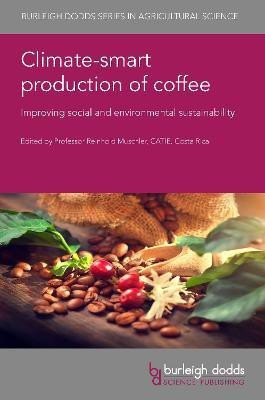Climate-Smart Production of Coffee(English, Hardcover, unknown)
Quick Overview
Product Price Comparison
"This book would make a fine addition to the library of any extension agent, Q Processor Pro, and even conscientious green coffee buyers. It illustrates how to think about improving the social and environmental sustainability of coffee production: by thinking of and treating coffee production as a complex system of interrelated and interdependent parts." (Review by Michael Wright, Oil Slick Coffee Company LLC, USA) "Speciality coffees emerged to satisfy a specific group of consumers, and such segmentation of the market continues today with refined gradations in quality and taste, along with a greater focus on social and environmental sustainability...the latter trend in coffee consumption also highlights the need for coffee growers to shift their production systems to a climate-friendly approach. Not only to meet the respective demand in the coffee market, but also to contribute to reducing the environmental impact of the coffee industry. How this can be done is outlined in this highly interesting and easy to read publication. Overall, this book that is based on extensive research by a wide range of internationally recognised experts, is of interest to all stakeholders in the coffee value chain, including extension workers and their organisations." (Dr Eric Tielkes, Book Review in the Journal of Agriculture and Rural Development in the Tropics and Subtropics) Coffee cultivation faces a number of crucial challenges, including increasing biotic and abiotic stresses related to climate change, concern about its environmental impact and the vulnerability of many smallholder coffee farmers. Climate-smart production of coffee: Improving social and environmental sustainability addresses the need for more resilient and sustainable methods of cultivation which produce high-quality products with minimum environmental impact while still protecting smallholder livelihoods. The book considers ways of assessing and improving social sustainability, including the role of speciality coffees in improving smallholder incomes, as well as ways coffee production can be optimised throughout the value chain, from breeding through to postharvest. Coffee is extremely susceptible to a range of pests and diseases such as soil-borne and other insect pests, nematodes and diseases such as coffee leaf rust. This new book reviews recent advances in sustainable crop protection methods on coffee farms and plantations around the world, with a particular focus on integrated pest and disease management programmes. With contributions from a wide range of internationally-renowned experts, the book shows how coffee production can be made more economically, environmentally and socially sustainable in the face of climate change.


